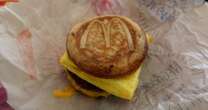CAVA hopes to expand its physical footprint after a year of financial success, CEO Brett Schulman announced in the company’s fourth quarter earnings call Tuesday.
Over the 2024 fiscal year—CAVA’s first full calendar year as a public company—the Mediterranean fast-casual restaurant chain saw a revenue growth of 28.3% and delivered four straight quarters of free cash flow. And after opening 58 new restaurants this past year, the company anticipates new market openings in Detroit, South Florida, Pittsburgh, and Indianapolis.
“We’re very excited to continue to grow those markets and build upon the presence we have in existing regions,” Schulman tells Fast Company.
The anticipated launches in these four new markets come after a successful launch in the greater Chicago metropolitan area, where three new CAVA locations opened in 2024. Schulman says that was “our best market opening ever.”
The Maryland-based chain currently operates inside 25 states and Washington, D.C. as the demand for health-conscious dining continues to grow.
‘You can’t discount your way to prosperity’
In the last fiscal year, CAVA experienced 8.7% traffic growth, while many industry competitors saw negative traffic growth. Schulman says that around two in three customers enter CAVA’s physical spaces to place an order, speaking to the chain’s emphasis on “Mediterranean hospitality.”
Much of this success, Schulman says, comes from an increased focus on providing value, rather than price discounting.
“You can’t discount your way to prosperity with guests,” Schulman says. “We look at value as a combination of quality, relevance, convenience and experience.” He claims that all of his decisions are guided by CAVA’s mission of bringing “heart, health and humanity” into food, from importing olive oil from Greece to putting fresh dill in the tzatziki dip.
In a difficult economy, especially for fast-casual restaurants, CAVA appears to be bucking industry norms. Roti, a different Mediterranean-style fast-casual chain, filed for bankruptcy in August. Buca di Beppo and Red Lobster also both filed for bankruptcy in the past year.
According to Schulman, CAVA stands out from the fast-casual chains that may be struggling because it “looks at people as assets, not expenses.”
“The demise of the dining room is greatly exaggerated,” he says. “People are feeling a void of human connection, and they’re craving it. And brands that are able to deliver that are the ones that are gaining market share and gaining brand affinity.”
Cava’s success in a struggling industry
After its “blockbuster” IPO in June 2023, the build-your-own-bowl chain has only seen success. Its stock price has soared 158% since the IPO, and Yelp named CAVA its fastest growing brand of 2024. And according to fast-casual competitor Chipotle’s most recent earnings report, sales growth in the past fiscal year for its set of comparable restaurants only increased by 7.4%—a little over a quarter of CAVA’s revenue growth.
Another large factor in last year’s success is CAVA’s reimagined loyalty program—a system similar to Chipotle’s points-based program. Frequent customers can exchange points (ten are awarded for every dollar spent) for free drinks, cookies, and even entrees. Since the new loyalty system rolled out nationwide in October, CAVA has seen a 2.3% increase in revenue going through the pool, hitting a record high revenue from loyalty transactions last year. In the coming year, CAVA hopes to add rewards that are brand centric rather than food based.
“We’ve expanded our audience,” Schulman says. “We’ve got our audience more highly engaged, which allows us to have much more personalized one-to-one communication.”









No comments